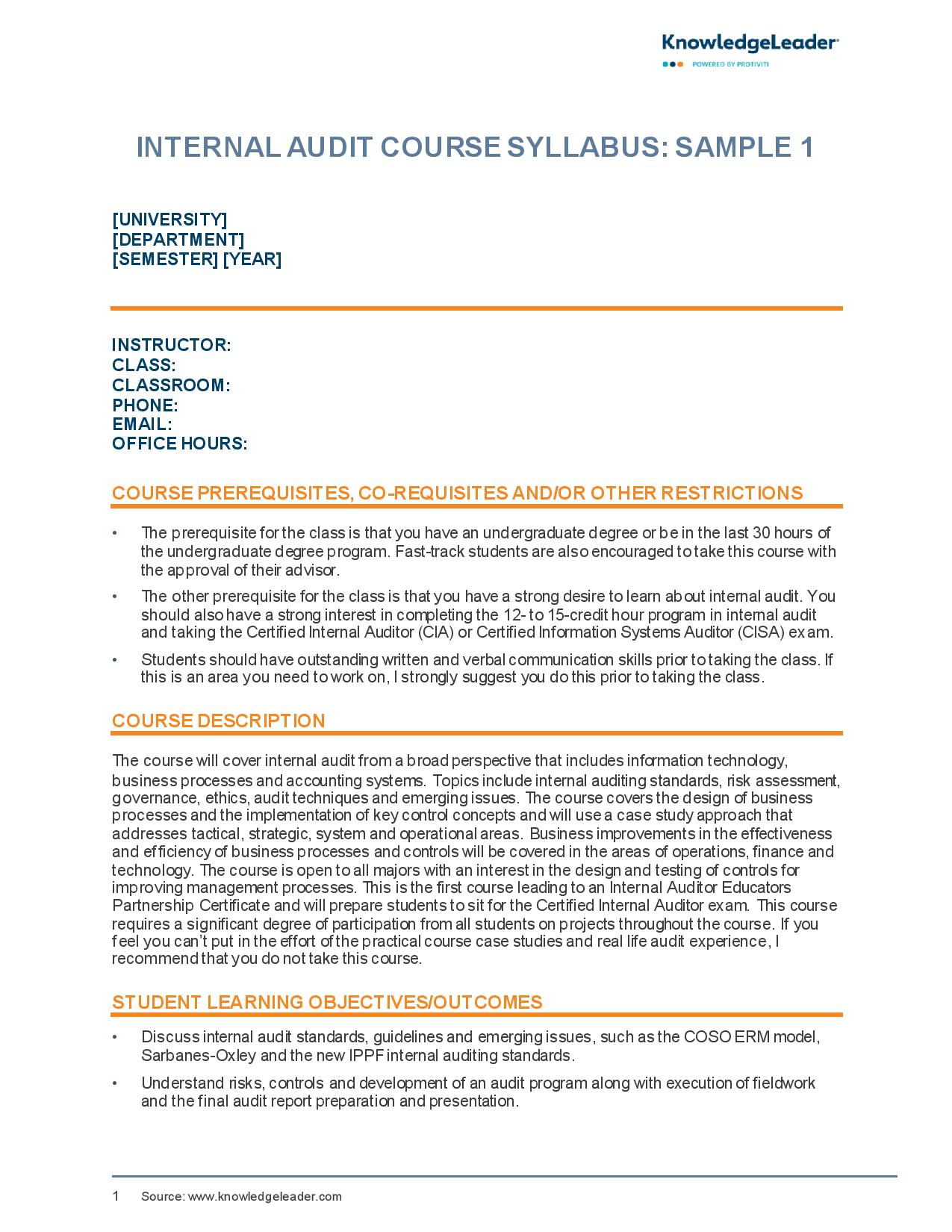Internal Audit Course Syllabus: Sample 1

Thank you to Mark Salamasick from the University of Texas at Dallas for contributing this content!
Course Description
The course will cover internal audit from a broad perspective that includes information technology, business processes and accounting systems. Topics include internal auditing standards, risk assessment, governance, ethics, audit techniques and emerging issues. The course covers the design of business processes and the implementation of key control concepts and will use a case study approach that addresses tactical, strategic, system and operational areas. Business improvements in the effectiveness and efficiency of business processes and controls will be covered in the areas of operations, finance and technology. The course is open to all majors with an interest in the design and testing of controls for improving management processes. This is the first course leading to an Internal Auditor Educators Partnership Certificate and will prepare students to sit for the Certified Internal Auditor exam. This course requires a significant degree of participation from all students on projects throughout the course.
Student Learning Objectives/Outcomes
- Discuss internal audit standards, guidelines and emerging issues, such as the COSO ERM model, Sarbanes-Oxley and the new IPPF internal auditing standards.
- Understand risks, controls and development of an audit program along with execution of fieldwork and the final audit report preparation and presentation.
- Distinguish between various industries’ differences in major processes, risk and evaluation of operational data.
- Discuss the importance of business processes in the internal audit process along with the variances of audit groups based on industry and other environmental factors.
- Pass parts one and two of the Certified Internal Auditor (CIA) exam.
- Work with internal audit groups in a team setting.
- Network with internal auditors in the local area and internationally.
- Learn the concepts of efficient and effectively controlled environments. Also, be able to explain why these controls may not be necessary.
- Develop skills necessary to be able to perform an internal audit and prepare an internal audit report.
- Be able to describe some of the common features of audit software and be able to describe scenarios where to integrate software into audit practice.